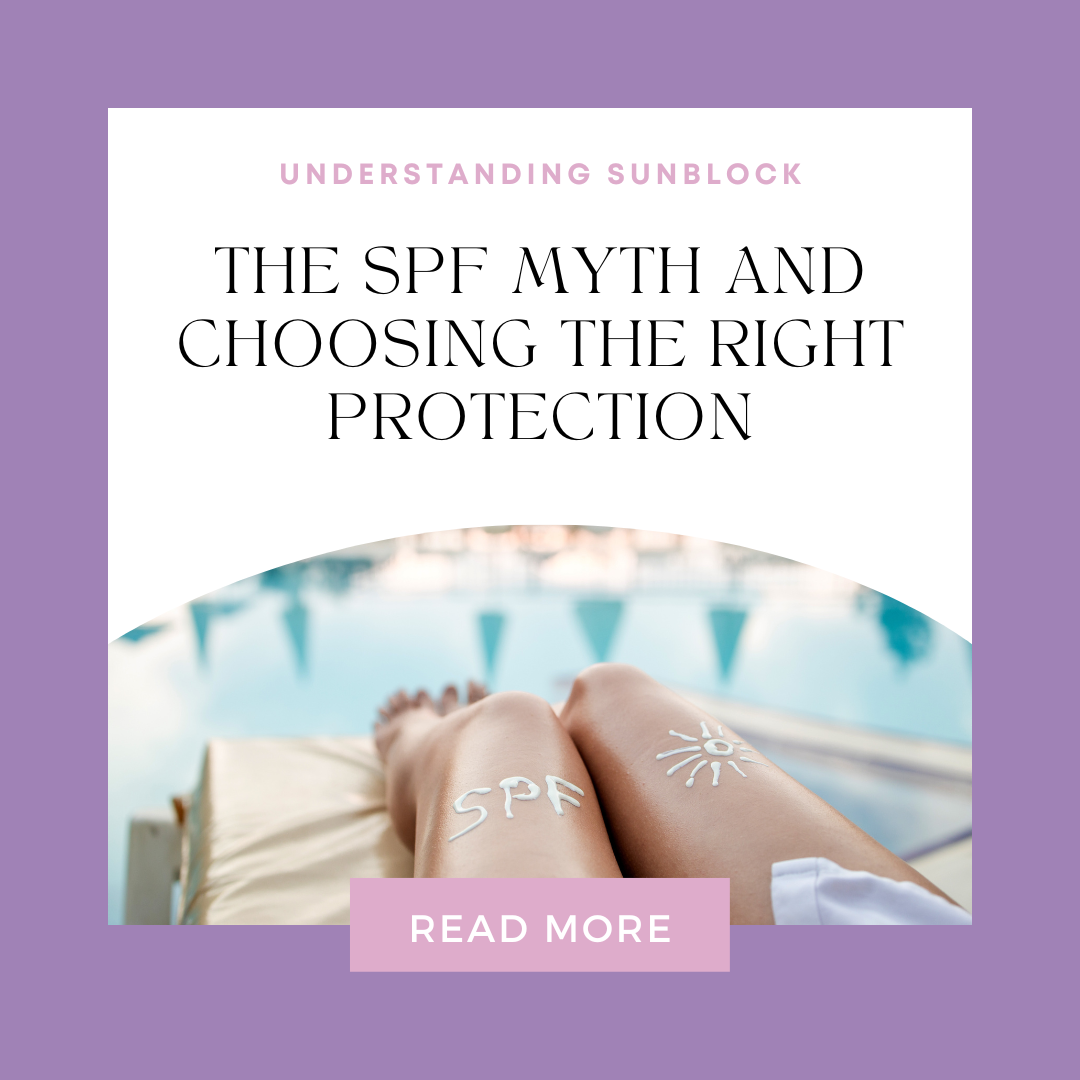
Sunblock is an essential part of our skincare routine, especially when we're spending time outdoors. However, there's a common misconception that a higher SPF (Sun Protection Factor) always means better protection.
In this blog post, we'll debunk the SPF myth and explore why lower SPF sunblocks can be just as effective, with the added advantage of reducing chemical exposure and the need for more frequent reapplication.
What is SPF?
SPF stands for Sun Protection Factor, a measure of how effectively a sunscreen or sunblock protects your skin from harmful UV (ultraviolet) radiation. The SPF number indicates the level of protection, with higher numbers suggesting increased protection.
The SPF Scale
- SPF 15 filters out approximately 93% of UVB rays.
- SPF 30 filters out about 97%.
- SPF 50 filters out roughly 98%.
- SPF 100 filters out nearly 99%.
Lower SPF Sunblock: The Benefits
Less Chemical Load
One of the key advantages of using lower SPF sunblocks is that they generally contain fewer active ingredients. High SPF sunscreens often incorporate more chemicals to achieve their increased protection levels. This can lead to concerns about the potential long-term effects of these chemicals on your skin and overall health.
Reduced Chemical Exposure
Lower SPF sunblocks can provide effective protection while minimizing your exposure to potentially harmful chemicals. Many people prefer this approach, especially if they have sensitive skin or are concerned about the impact of chemicals on their bodies.
More Frequent Reapplication
It's important to note that lower SPF sunblocks may need to be reapplied more frequently than higher SPF ones. This is because they offer less immediate protection and may wear off more quickly, especially if you're sweating or swimming. However, this need for more frequent reapplication is a small trade-off for the reduced chemical load.
How to Choose the Right Sunblock
Consider Your Skin Type
- If you have sensitive or allergy-prone skin, lower SPF sunblocks might be a better choice to minimize irritation.
- If you have fair or very sensitive skin, a higher SPF can provide extra protection during prolonged sun exposure.
Daily Use vs. Intense Sun Exposure
- For daily use with limited sun exposure, a lower SPF sunblock is usually sufficient.
- For extended periods of sun exposure, like a day at the beach or hiking, consider using a higher SPF and reapply as needed.
Broad-Spectrum Protection
Regardless of SPF level, always choose a sunblock that offers broad-spectrum protection. This means it guards against both UVA and UVB rays, which are responsible for premature aging and sunburn, respectively.
Recommended Sunblocks
Aspect Dr Hydra Shield with Zinc
Key Benefits:
- UVA and UVB Protection
- Hydrates
- Antioxidant protection
Usage Recommendations:
- Apply generously and reapply as needed.
- Suitable for all skin conditions.
––––––––
Even More Sun Care+ Range - RAD ANTIOXIDANT SUN CREAM
Key Features:
- SPF 15 for medium protection.
- Broad spectrum protection against UVA and UVB rays.
- Contains antioxidants, titanium dioxide, beta-carotene, and vitamins C and E.
- Suitable for all skin types and ages, including babies older than six months.
Usage Recommendations:
- Apply evenly to the entire body for effective sun protection.
- Suitable for use under makeup.
––––––––
Jane Iredale Mineral Makeup
Product Description:
- #1 best-selling one-step foundation, concealer & sunscreen.
- Weightless, medium-to-full coverage with a second-skin finish.
- Includes PurePressed® Base Mineral Foundation REFILL SPF 20/15.
Benefits:
- Provides sun protection while offering makeup coverage.
- A convenient way to incorporate SPF into your makeup routine.
Remember to choose the sun protection method that suits your needs, whether it's a dedicated sunscreen or makeup with SPF. The best sun protection is the one that you'll use consistently to shield your skin from the harmful effects of the sun.
